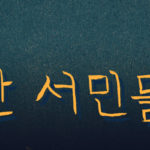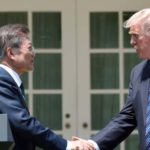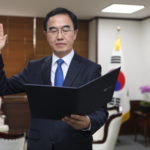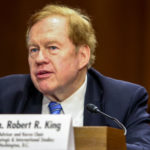October 7, 2021, by Min-Jung Kim—
On January 22, 2021, a controversial bill was proposed by the Ministry of Unification of South Korea. If radio broadcasting to North Korea is subjected as indicated, the bill can have a far greater impact in the United States than the Anti-Leaflet Law has, as most of the radio broadcasting activities to North Korea by South Korean nongovernmental organizations (NGOs) are funded by the U.S. government or U.S. citizens.
February 8, 2018, by Victor Cha and Marie DuMond—
A study commissioned by Beyond Parallel of North Koreans currently living inside the country found that 34 of 36 of respondents, or 94.4%, felt that unification is necessary. The majority of respondents, 44.1%, cited the shared ethnicity between North and South Korean’s as the main reason unification should occur.
December 4, 2017, by Marie DuMond—
South Korea and the United States generally share similar estimations of China’s and Japan’s blind spots in a unification scenario. Both believe that Beijing has the most prominent blind spot on domestic stabilization and refugees, and that Japan shares similar concerns, suggesting that all four powers could prioritize law and order in a unification scenario.
November 13, 2017, by Marie DuMond—
Beyond Parallel’s first-ever survey of expert assessments on unification-related issues indicate South Korea and the United States share the common view that domestic stabilization and unification costs constitute the most critical unification blind spots with a high degree of concern but low levels of knowledge for both countries.
October 18, 2017, by Marie DuMond—
Domestic stabilization is the most critical issue with unification for South Korean officials and experts, registering the highest composite score (i.e., high level of concern and low level of knowledge). This means civil-military relations, law and order, and stability in the North represent the issues for which Koreans see great consequences for national interests, but for which they have little prior knowledge or understanding. Hence, it is the greatest potential “blind spot” of unification. Costs related to unification rank a close second for South Koreans, followed by refugees, nuclear weapons, and human rights.
October 2, 2017—
The debate over how to deal with North Korea’s nuclear program has been raging for nearly 25 years. In this study, CSIS Beyond Parallel collected information on negotiations between the U.S. and North Korea to shed light on the present nuclear dilemma.
July 19, 2017—
On June 30, 2017, His Excellency Moon Jae-in, President of the Republic of Korea, delivered a Global Leaders Forum address to a Washington D.C. foreign policy audience of more than 250 at CSIS headquarters. This occasion marked several firsts: President Moon's first foreign policy address abroad, his first visit to the United States as president, and his first summit meeting with the Donald J. Trump administration.
July 18, 2017, by Evan Ramstad—
South Korea’s New President, in Trying to Develop Economic Policy, is Caught up in Geopolitics. South Korea’s new president, Moon Jae-in, in his first two months in office is trying to ease the country’s relations with North Korea just as liberal predecessors, Kim Dae-jung and Roh Moo-hyun, sought to do. Moon opened the door to negotiations and even a summit with the North’s Kim Jong Un, but he has also spoken critically of the North’s missile tests and, with a missile firing and flyovers conducted with the U.S., flexed the South’s military muscles. Moon’s economic strategy is unfolding in a similar manner, with ideas that are like those of the progressive leaders past and some tactics that show he recognizes when difficult choices are needed.
July 14, 2017, by Joseph Kim—
Cho Myung-gyon is South Korea’s new Minister of Unification. He was nominated by President Moon Jae-in on June 13 and took office on July 3, 2017. .. Cho Myung-gyon took office as South Korea’s 39th Minister of Unification on July 3, 2017.…
July 12, 2017, by Robert King—
One of the most important recent steps forward was the creation of the United Nations Commission of Inquiry on DPRK human rights violations and its ground-breaking report which was issued in 2014. That report concluded that the DPRK regime systematically violated the human rights of its own people—including freedom of thought, expression and religion; freedom from discrimination; freedom of movement and residence; and the right to food.










